Freudenberg, ZF & FlixBus cooperate on FC buses
Freudenberg has launched the HyFleet research project with ZF Friedrichshafen and FlixBus. The partners want to develop a fuel cell drive system for long-distance buses by 2024. In addition to the three companies mentioned above, a “major European bus manufacturer” that has not been named is also participating in HyFleet.
In the first phase of the three-year project, the partners want to focus on the technical performance of the fuel cell. This includes, among other things, optimising the continuous operation behaviour of the fuel cell system to a minimum operating time of 35,000 hours. Another research focus is on hybridisation strategies for the powertrain, the so-called “right-sizing” between fuel cell and battery.
Within the project, the suppliers Freudenberg and ZF are responsible for the actual development of the powertrain suitable for long-distance travel. As consortium leader, Freudenberg will contribute the fuel cell system itself, while ZF will be active primarily in the fields of battery and fuel cell dimensioning, the cooling concept, power electronics and software-based control of all energy consumers. This is “an innovative subject area with high relevance for all heavy-duty segments”, it says in an accompanying press release. The system will then be tested directly in a demonstrator remote bus, it added.
“Freudenberg will contribute decades of fuel cell expertise on component and system level to the project,” explains Claus Möhlenkamp, CEO of Freudenberg Sealing Technologies. “We aim to significantly advance the long-term durability and efficiency of the technology and set standards for the total cost of ownership.”
According to Wilhelm Rehm, member of the ZF Board of Management responsible for Commercial Vehicle Technology and Control Systems, the fuel cell will play an important role in e-mobility for heavy commercial vehicles due to its range and fast refuelling times. “We have always pursued electrification with an open-minded approach to technology – the fuel cell has also played an important role as a drive solution for us from the very beginning.”
According to the partners, in order for the fuel cell system to withstand the rigours of practical use in long-distance buses, it is important to control the degradation mechanisms and thus maximise the efficiency of the system over its entire service life. For fleet operators, this should result in lower fuel consumption. Similar to long-haul trucks, long-distance buses are often in operation day and night and travel well over 100,000 kilometres a year, the project participants point out. In addition; “The durations of stopovers must be minimized in the interest of the passengers. And the long charging times for the batteries of purely battery-electric drives as well as the implementation of the cost-intensive charging infrastructure this requires are simply not feasible in this sector.”
FlixBus has already tried introducing BEV buses, but quickly discontinued the trial on a route between Frankfurt and Mannheim, for example. The company operates more than 4,000 long-distance buses in regular service with a good 500 partner companies. “Fuel cell technology will make an important contribution to the drive train technology shift in mobility. And it gives bus manufacturers, for example, the opportunity to actively help shape the future of travel. We are proud to be part of the HyFleet project to develop the first fuel cell-powered long-distance bus in Europe until 2024 together with Freudenberg and ZF,” says André Schwämmlein, co-founder and CEO of FlixMobility.
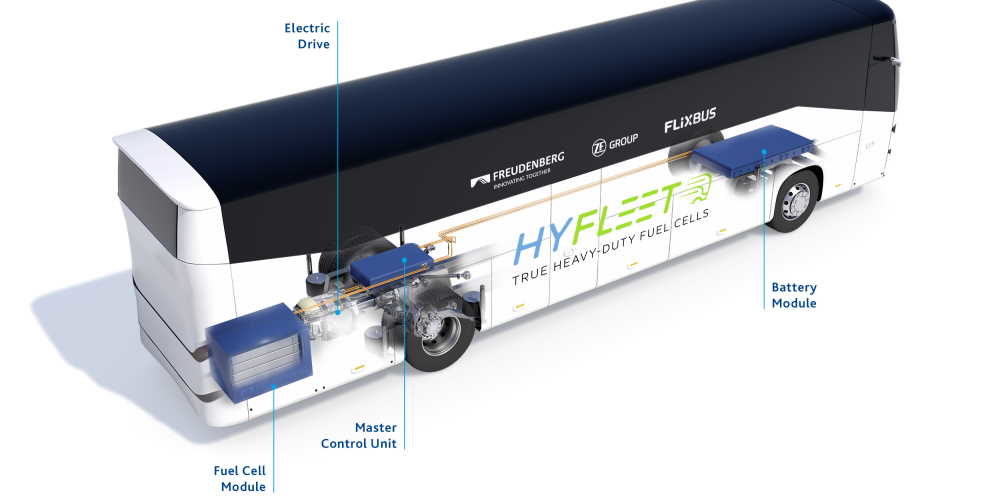
Although HyFleet focuses on coach fleets, the project partners say they attach importance to the fact that the results achieved are transferable to all heavy-duty segments, “especially freight transport with heavy trucks”. The aim is to lay the scientific foundations for rapid industrialisation and upscaling of the technology. The project will most likely receive public funding. The Federal Ministry of Transport and Digital Infrastructure has given a non-binding indication of its intention to do so.
Consortium leader Freudenberg has already been initiating various cooperation projects with well-known partners for the development of fuel cell systems for the heavy-duty sector since 2018. Among other things, the company is a technology partner in the ‘Pa-X-ell2’ project, which aims to develop a new generation of fuel cells for use on ocean-going passenger ships. There is also a partnership with ZF outside the HyFleet project to develop further fuel cell solutions for mobility applications and industrial use.

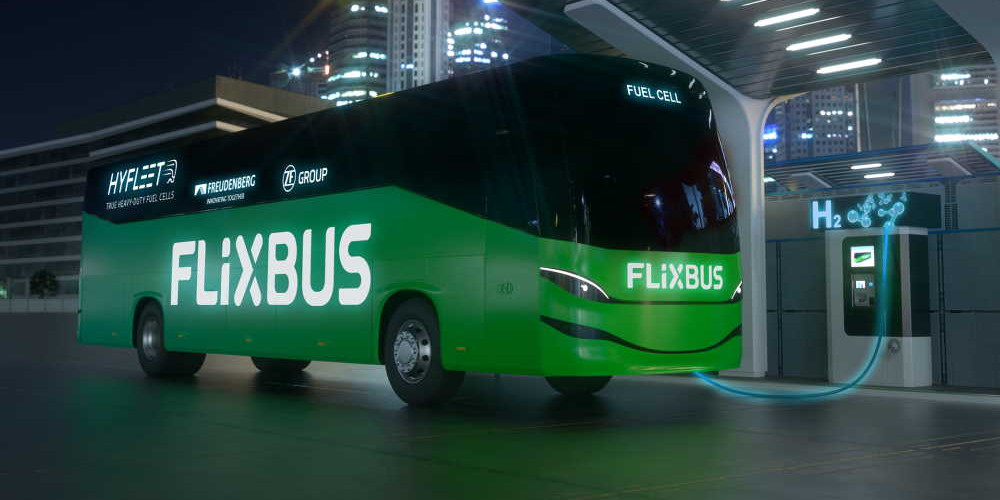
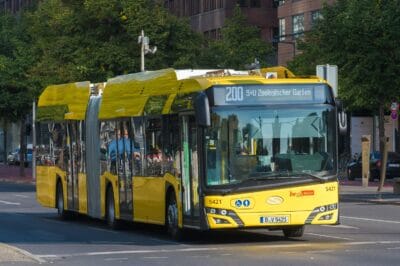
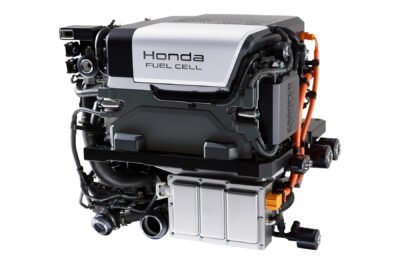
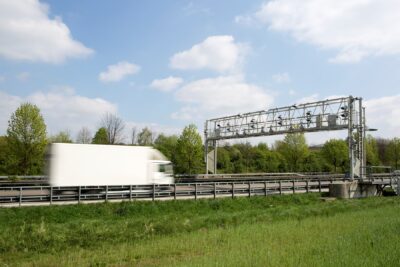
0 Comments